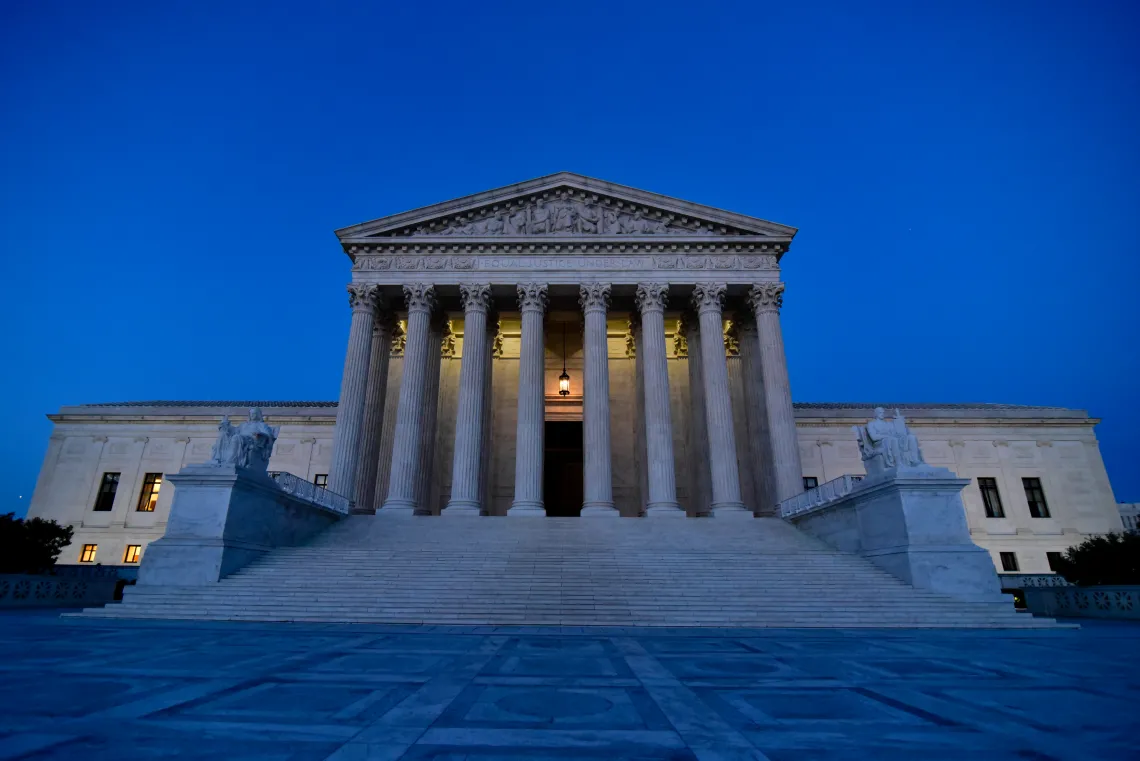University of Arizona Law Professors Warn the Supreme Court’s Religious Speaker Cases May Extend to Technology Companies
Massaro and Woods make a compelling case for why the First Amendment must evolve alongside the technology it governs.

As the digital world becomes increasingly central to everyday life, the complexities of regulating it grow as well. In their forthcoming Yale Law Journal article, “From Gods to Google,” University of Arizona Law Regents Professor Toni M. Massaro and Milton O. Riepe Professor of Law Andrew Keane Woods, along with co-authors Rebecca Aviel and Margot Kaminski, explore how the U.S. Supreme Court’s free speech rulings have made regulating tech companies harder than ever.
“There is surprising bipartisan consensus that the Internet needs to be regulated,” said Woods. “We need regulation to address a huge range of issues—protecting children, ensuring privacy, preventing discrimination, and more. The digital world is becoming our world, and like any other space, it needs law and regulation.”
Over the past several decades, the Supreme Court has handed down a series of First Amendment decisions that give religious speakers broad free speech protections. This has created precedent that tech firms have seized upon to challenge regulations. “Cases protecting religious speech have given firms a powerful suite of deregulatory tools,” said Massaro. “This is where the connection from gods to Google begins. What started with protecting individual religious dissidents has now morphed into free speech protection for technology giants.”
The article looks at two major Supreme Court cases that show this shift: 303 Creative v. Elenis and Moody v. NetChoice. In 303 Creative, the Court sided with a Christian website designer who said Colorado’s anti-discrimination law violated her free speech by requiring her to create wedding websites for same-sex couples. Massaro and Woods show that the logic of this case cannot be limited to religious speakers, and indeed has inspired tech companies to challenge regulations meant to keep them in check.
“Technology firms have wasted no time using 303 Creative to challenge a variety of new laws which involved free-speech challenges to the regulation of internet platforms,” said Massaro. 303 Creative was a core component of the industry’s argument in Moody v. NetChoice, a 2024 case assessing Florida and Texas laws that limit how social media platforms moderate content. “The Court in Moody didn’t address the full implications of 303 Creative in Moody, leaving lower courts and lawmakers struggling to sort it all out,” she said.
The stakes of this doctrinal conflict are enormous—not just for the legal system but for society as a whole. “When we go online, we live in private corporate gardens where the owners set almost all of the rules through terms of service,” Woods said. “If the entirety of our digital speech ecosystem—where we debate, form opinions, and engage in democracy—is entirely in private hands, and the state can’t set any guardrails, that has massive societal and democratic consequences.”
For Massaro, the solution lies in rethinking First Amendment doctrine to account for the realities of the digital age. “It’s time for the Court to take a more nuanced approach,” she said. “We need a framework that allows for sensible regulation of technology while still protecting free speech.”
As digital platforms continue to shape nearly every aspect of modern life, “From Gods to Google” offers a critical lens for understanding the legal and societal stakes. By highlighting the doctrinal tensions and proposing a path forward, Massaro and Woods make a compelling case for why the First Amendment must evolve alongside the technology it increasingly governs.
